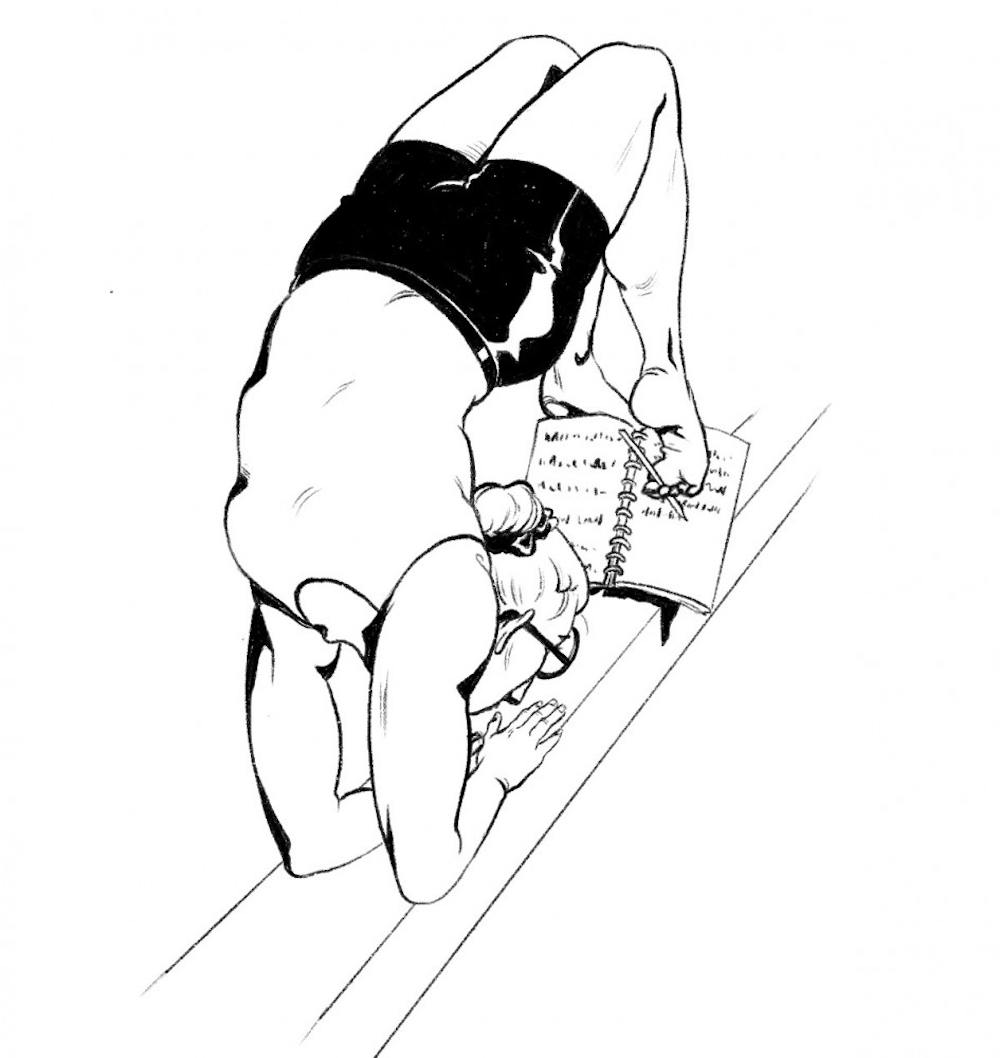The University’s long-standing student-athlete tutoring program, which grants individualized scheduling and attention for students juggling athletics and academics, has grown in recent years to best accommodate athletes’ unique demands.
The program has the best interests of students in mind, said Student-Athlete Services Coordinator Victoria Flowers. “We want to allow our student-athletes to be students and not have to sacrifice any part of themselves. We want them to do everything they can while they are here at Brown.”
The program makes this possible because it “provides additional support for athletes to be successful in the classroom and to better understand the work,” said Carolan Norris, senior associate director of athletics and student-athlete services. “They put a lot of hours into academics, as well as athletics, and (the program is) a support system that can help with confidence as they sit in the classroom.”
The tutoring program matches athletes with student tutors who understand the time commitment required for varsity athletics. “It’s super helpful connecting athletes with other athletes because they understand the scheduling conflicts and time management issues we face,” said Katie Klein ’22, a member of the water polo team.
But Sara Syed ’22, a member of the squash team, said that the program has not always met her academic needs. When she emailed to ask for a tutor in the fall for APMA 1650: “Statistical Inference I,” “they kept pushing it off,” Syed said. “Eventually, I gave up trying.” This lack of support surprised her because she previously had positive experiences with the program. In her freshman year, she “was paired with a tutor for (MATH 0100: ‘Introductory Calculus’) right away and he was very responsive and helpful,” she said.
The Office of the Dean of the College is currently responsible for setting all non-athletes up with group tutors. Flowers explained that the student-athlete tutoring service works on “a first-come-first-serve basis … and follows a similar process to the Dean’s office in terms of how we match our students.”
But challenges can arise when demand is high. “We can get close to 1,000 athletes at any given time with only 150 to 200 tutors,” Flowers said. “We can take about 300 to 400 requests each semester.”
Syed also described an experience her teammate had in which she was matched with an unresponsive tutor. “She reached out to the tutor to try and set up a meeting and never heard back,” Syed said. “When she asked to be re-assigned, they kept pushing her off until she stopped trying.”
Jasmine Lee ’23, a member of the gymnastics team, noted that the demand for non-athlete-specific group tutoring is similarly high. “I’d like (the tutoring program) to be a little more accessible,” she said. “I know there are very limited time slots available for groups. I tried to get in for chemistry but all the slots were while I was traveling for meets or at practice,” she said.
Athlete tutoring is not unique to Brown. “This is an NCAA-sponsored event,” Norris said. “That means it isn’t funded by the University. That’s an important distinction.” The NCAA funds programs such as this one at every school under its purview.
Similar programs at Dartmouth and Columbia are known for their comprehensiveness and responsiveness, Syed said, adding that their programs have particularly positive reputations among collegiate athletes.
The tutoring department at Dartmouth College, for example, is called the Academic Skills Program and is divided between professional “academic coaches” and student tutors. Academic coaches are college graduates, some with professional degrees, who are trained to help with issues such as time management and learning disabilities. “At whatever level of schooling or type of school, students can be encouraged to think, read and write effectively and intentionally, and it is our task as teachers to use one or more research-based approaches to accomplish that task,” said Carl Thum, director of the academic skills program and adjunct assistant writing professor at Dartmouth College.
Thum noted that while the practice of academic coaching is relatively unique to Dartmouth, its peer tutoring program bears many similarities to that of the University, as they also match student requests with tutors for one-on-one appointments. But their athletic tutoring department, while separately funded, is not distinct from their central Academic Skills Program — the umbrella tutoring service under which both athlete requests and other student requests are handled. Student athletes are generally given the same options as other students, with some special attention to scheduling around practice times.
This connection between regular tutoring services and those directed at athletes is something the University hopes to continue to improve. “The Dean’s office has been incredibly supportive in what we do to better support our student athletes,” Flowers said.
“When you look across the country, all students need some type of support,” Norris added. Flowers and Norris explained that the program has improved as a result of support from and collaboration with the Office of the Dean of the College.
Syed expressed a similar interest in consolidating resources for athlete tutoring and group tutoring. “Group tutoring at Brown is really great and I find that these tutors are very well-trained and accessible. Maybe these two programs could be merged a bit more,” she said.
Klein sees the lack of special accommodations given to athletes as a benefit. “Brown does a good job of making it so student-athletes feel like they are just regular students and don’t have a ton of accommodations ... It’s different from other schools that way,” she said.
Looking to the future, the athletic tutoring program is continuing to improve its support of student-athletes for both their academic and athletic wellbeing, Flowers and Norris emphasized. “If you are excelling in the classroom, you will be able to excel in your sport. We care about them as individuals and students as well as athletes,” Flowers said. “This program, ideally, will allow us to support them wholly.”





